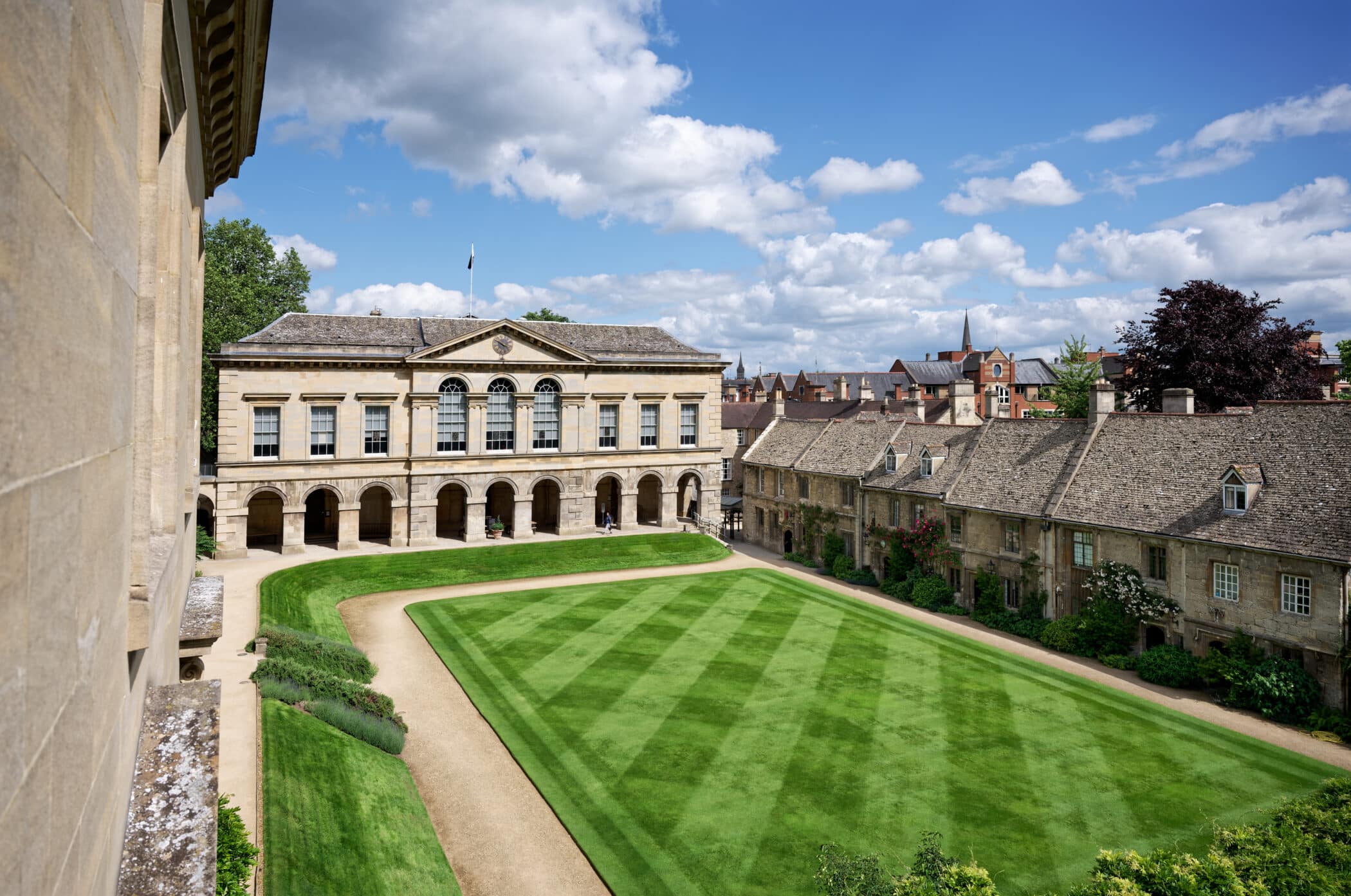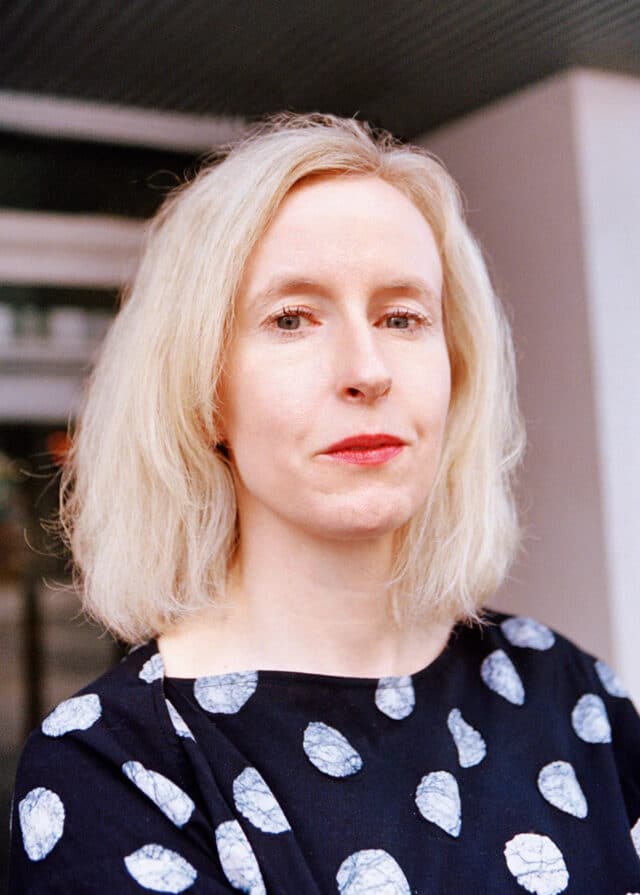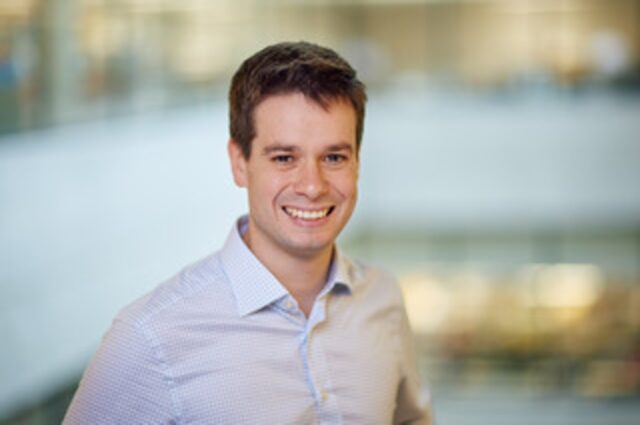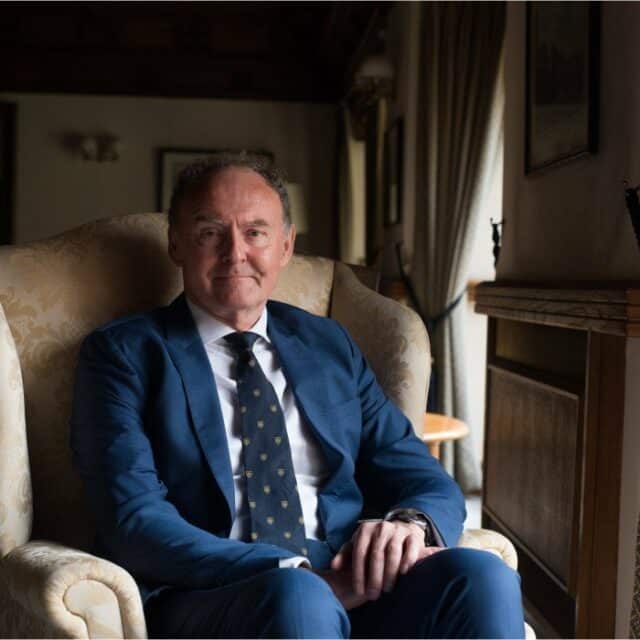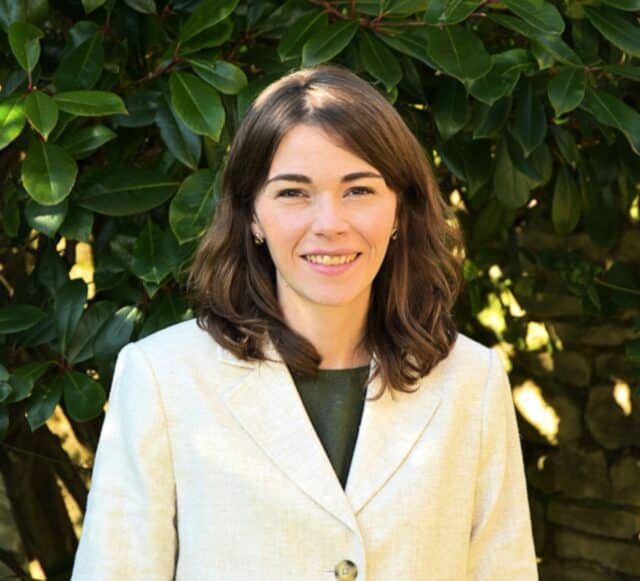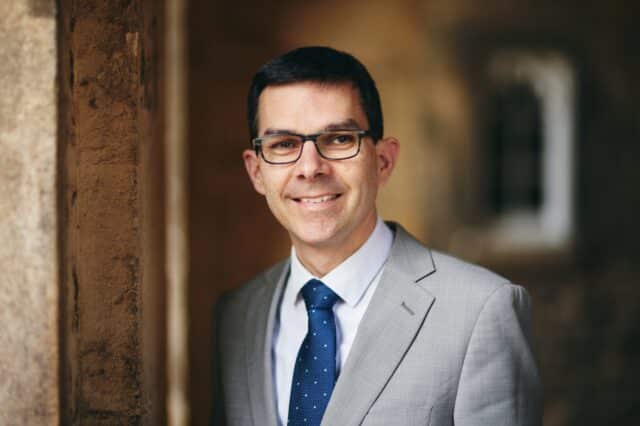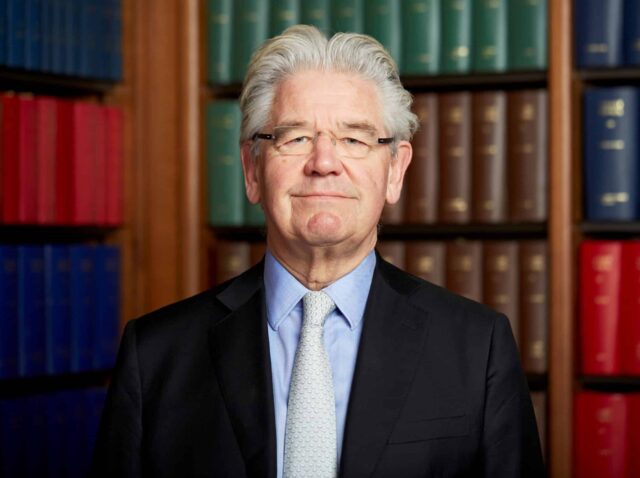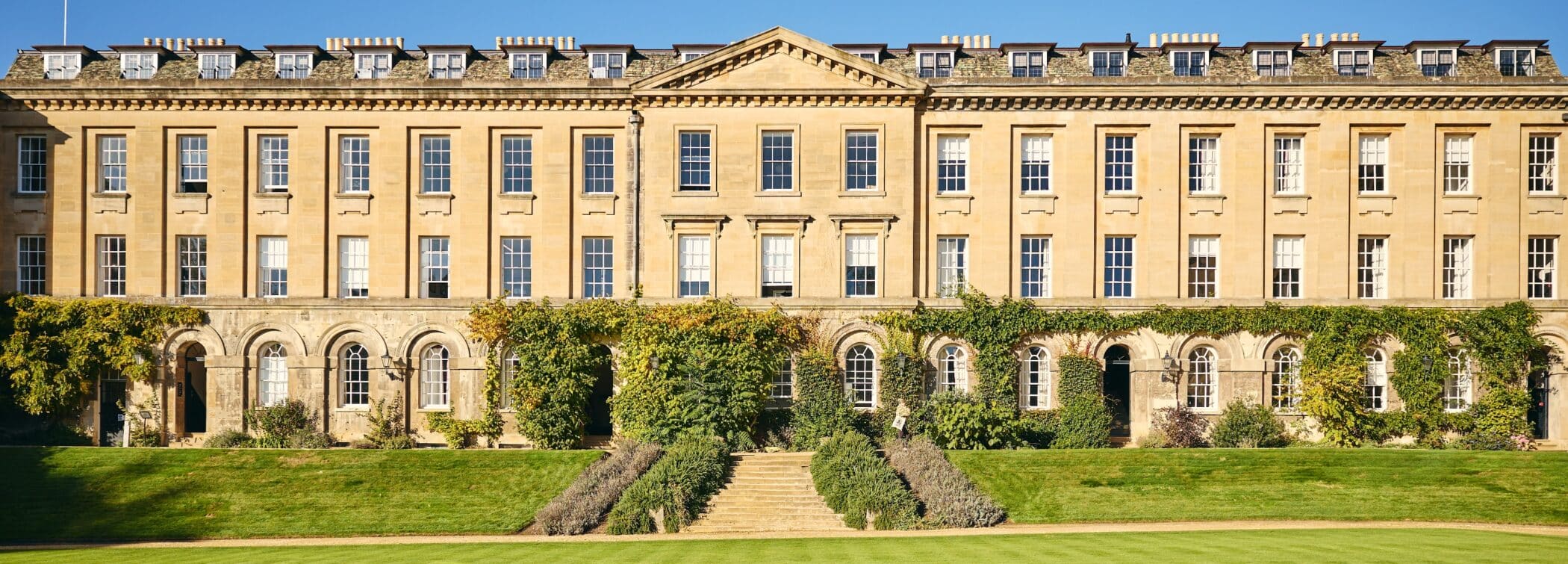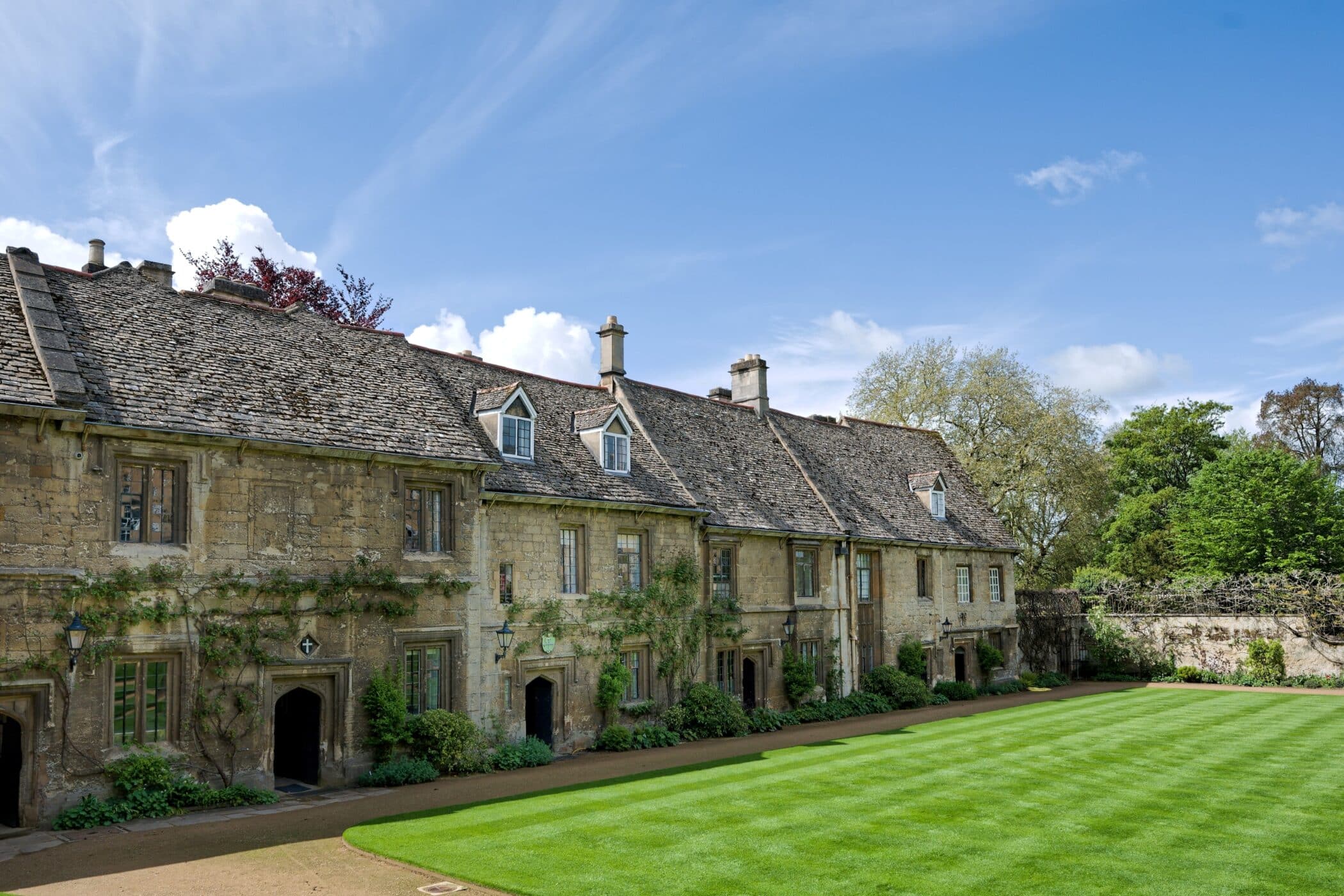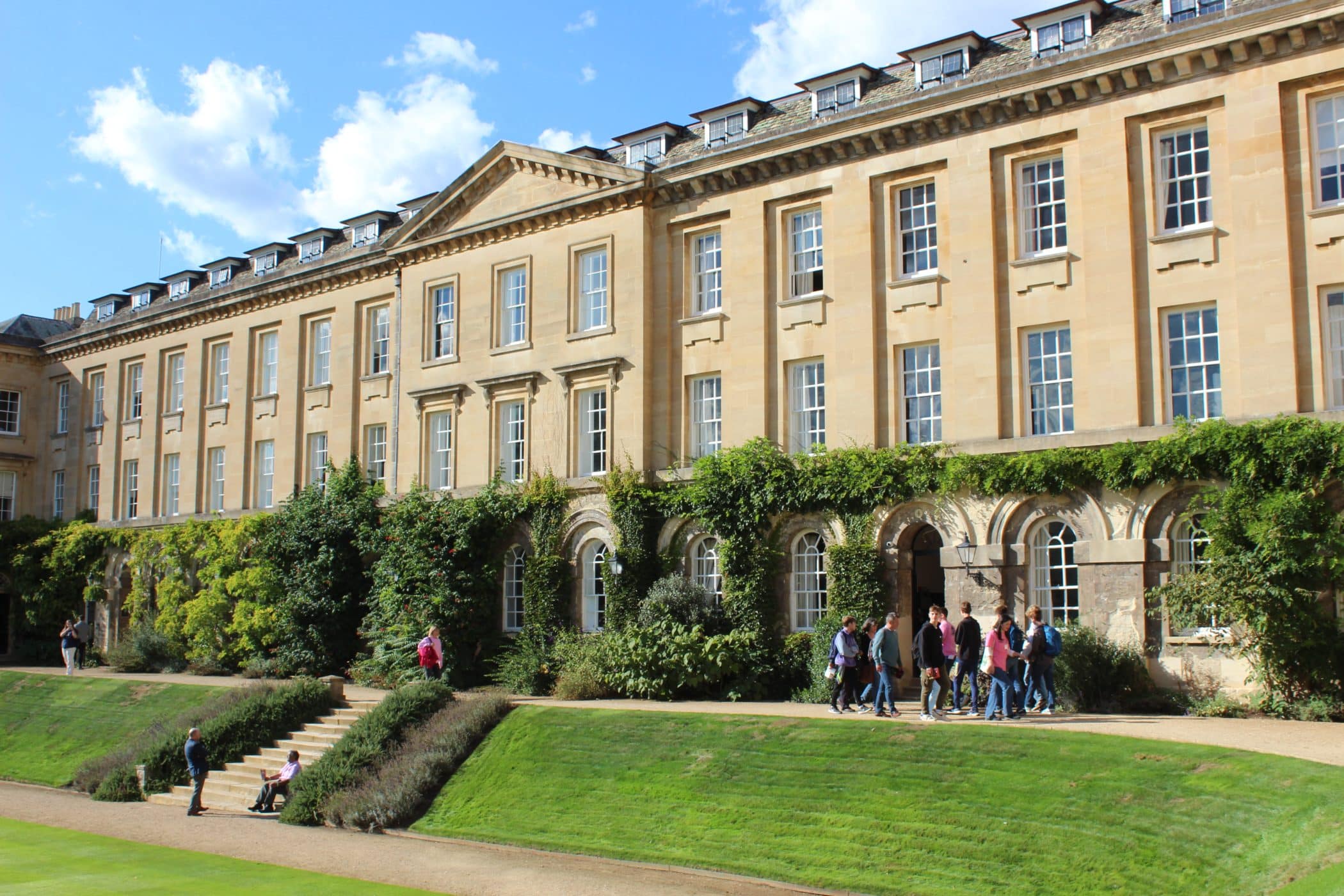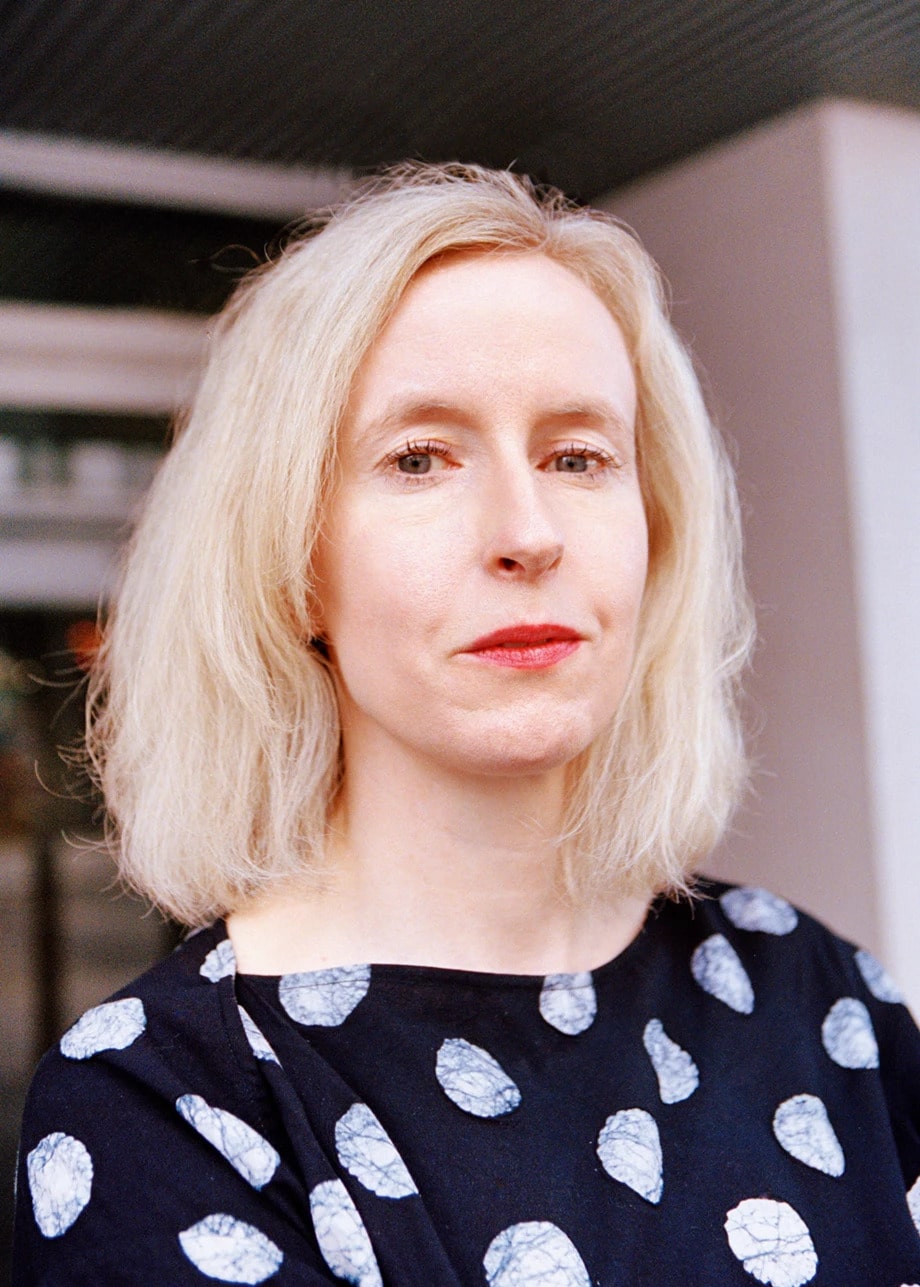
Fun fact
Jen has assumed multiple alter egos for her Grúpat project
Professor Jennifer Walshe
Fellow & Tutor in Music
Professor of Composition
Education
Bmus (RSAMD), PhD (Northwestern)
‘The most original compositional voice to emerge from Ireland in the past 20 years’ (The Irish Times) and ‘Wild girl of Darmstadt’ (Frankfurter Rundschau), composer and performer Jennifer Walshe was born in Dublin, Ireland. Her music has been commissioned, broadcast and performed all over the world. She has been the recipient of fellowships and prizes from the Foundation for Contemporary Arts, New York, the DAAD Berliner Künstlerprogramm, the Internationales Musikinstitut, Darmstadt and Akademie Schloss Solitude among others.
Recent projects include TIME TIME TIME, an opera written in collaboration with the philosopher Timothy Morton, and THE SITE OF AN INVESTIGATION, a 30-minute epic for Walshe’s voice and orchestra, commissioned by the National Symphony Orchestra of Ireland. THE SITE has been performed by Walshe and the NSO, the BBC Scottish Symphony Orchestra and also the Lithuanian State Symphony Orchestra. Walshe has worked extensively with AI. ULTRACHUNK, made in collaboration with Memo Akten in 2018, features an AI-generated version of Walshe. A Late Anthology of Early Music Vol. 1: Ancient to Renaissance, her third solo album, released on Tetbind in 2020, uses AI to rework canonical works from early Western music history. A Late Anthology was chosen as an album of the year in The Irish Times, The Wire and The Quietus.
Walshe is currently Professor of Composition at the University of Oxford. Her work has been profiled by Alex Ross in The New Yorker and by Andrew Dickson in The New York Times.

Professor Alan Ware
Emeritus Fellow
Education
MA DPhil (Oxford)
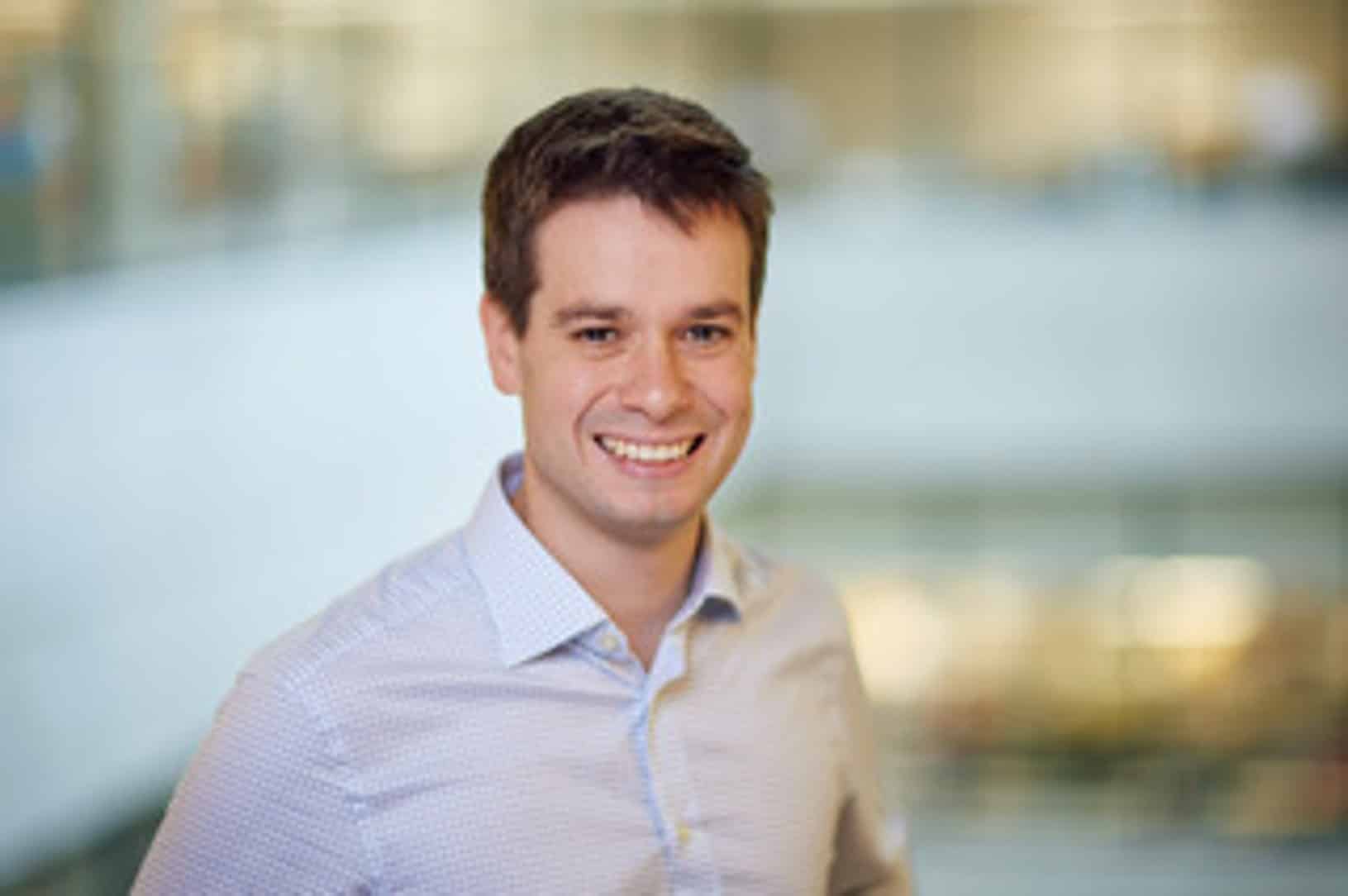
Fun fact
When I was 18, I travelled to Mongolia and spent 5 weeks living with Nomads
Dr Robert Watson MRCP
Fellow & Director of Graduate Entry Medicine
Clinical Lecturer, Department of Oncology
Supernumerary Fellow
Education
BA(Hons), BM BCh, PGDip, DPhil
I studied medicine at Oxford (Worcester and GTC), graduating with a First Class and Distinction, before undertaking the Academic Foundation Programme in North West London where I worked as a junior doctor alongside conducting primary care research at Imperial College. I then took a career break and worked for The Nuffield Trust healthcare policy think tank and as a volunteer doctor in Blantyre, Malawi. I returned to Oxford in 2016 to take up an Academic Clinical Fellowship in medical oncology and was appointed a Lecturer in Medicine at Worcester. Following this I undertook a DPhil (PhD) in Oxford, and am now completing higher specialty training in Medical Oncology, alongside conducting Postdoctoral research at the University of Oxford. I was appointed as a Supernumerary Fellow of Worcester College in 2024.
As Director of Graduate Entry Medicine at Worcester I act as Director of Studies for students on the accelerated medicine course – this is a four-year medical degree for those with an undergraduate degree in a science subject. As well as acting as Admitting Tutor for this subject and being College Advisor for all students on this course, I deliver lots of teaching on topics such as cancer biology, immunology, medical ethics and critical appraisal. I also teach the clinical students (years 2-4 of the graduate entry course and years 4-6 of the undergraduate course) across a wide range of medical topics in both a classroom-based and bedside setting (i.e. on the hospital wards).
As well as being a Fellow and Director of Graduate Entry Medicine at Worcester, I am a Clinical Lecturer in the Department of Oncology, spending half my time conducting post-doctoral research and the other half as a clinical doctor, completing higher specialty training in medical oncology.
I completed a Wellcome Trust-funded DPhil in the Fairfax Lab at the Weatherall Institute of Molecular Medicine (WIMM) in August 2023 and continue to work with Prof. Ben Fairfax and other colleagues across Oxford Cancer to understand T cell responses following immune treatments for cancer. I use a variety of techniques including single cell transcriptomics and analysis of T cell repertoires to draw novel insights into the molecular mechanisms of immune checkpoint blockade and other experimental immunotherapies. I primarily work with human tissue and aim to translate research findings into patient-focussed interventions.
My current post is funded by CRIS, a Spanish cancer research charity, and prior to this I was awarded a CRUK pre-doctoral bursary, which allowed me to generate preliminary data to apply to the Wellcome Trust for my Doctoral Fellowship.
View all publications on ORCID
Highlights:
- Taylor CA*, Watson RA*, Tong O*, Ye W, Nassiri I, Gilchrist JJ, et al. IL7 genetic variation and toxicity to immune checkpoint blockade in patients with melanoma. Nature Medicine 2022 Dec;28(12):2592–600.
- Tsakok MT*, Watson RA*, Saujani SJ, Kong M, Xie C, Peschl H, et al. Chest CT and Hospital Outcomes in Patients with Omicron Compared with Delta Variant SARS-CoV-2 Infection. Radiology. 2022 Jun 21;220533.
- Watson RA*, Tong O*, Cooper R, Taylor CA, Sharma PK, de los Aires AV, et al. Immune checkpoint blockade sensitivity and progression-free survival associates with baseline CD8+ T cell clone size and cytotoxicity. Science Immunology. 2021 Oct;6(64).
- Watson RA*, De La Pena H*, Tsakok MT, Joseph J, Stoneham S, Shamash J, Joffe JK, Mazhar D, Traill Z, Ho LP, Brand S, Protheroe A. Development of a best-practice clinical guideline for the use of bleomycin in the treatment of germ cell tumours in the UK. British Journal of Cancer. 2018 Oct;119(9):1044-1051.
- Mazet JM, Mahale JN, Tong O, Watson RA, Lechuga-Vieco AV, Pirgova G, et al. IFNγ signaling in cytotoxic T cells restricts anti-tumor responses by inhibiting the maintenance and diversity of intra-tumoral stem-like T cells. Nature Communications. 2023 Jan 19;14(1):321.
- Gilchrist JJ, Makino S, Naranbhai V, Sharma PK… Watson RA…, et al. Natural Killer cells demonstrate distinct eQTL and transcriptome-wide disease associations, highlighting their role in autoimmunity. Nature Communications. 2022 Jul 14;13(1):4073.
- Ahern DJ, Ai Z, Ainsworth M, … Watson RA…, et al. A blood atlas of COVID-19 defines hallmarks of disease severity and specificity. Cell. 2022 Mar 3;185(5):916-938.e58.
- Peng Y, Felce SL, Dong D, Penkava F, Mentzer AJ… Watson RA,… et al. An immunodominant NP105–113-B*07:02 cytotoxic T cell response controls viral replication and is associated with less severe COVID-19 disease. Nature Immunology 2022 Jan;23(1):50–61.
- Chinnery PF, Bonnet M, Cave A, Hofer MP, Lamb A,… Watson RA…, et al. Choosing drugs for UK COVID-19 treatment trials. Nature Reviews Drug Discovery. 2022 Feb;21(2):81–2.

Anthony Weale
Emeritus Fellow
Education
MA (Oxford)
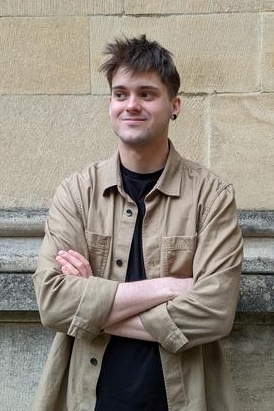
Dr George Webster
Learning Development Officer
George provides support for students seeking advice with a wide range of study skills including effective time management, dealing with deadlines, note-taking, research and writing – email him to book an appointment or ask any questions.
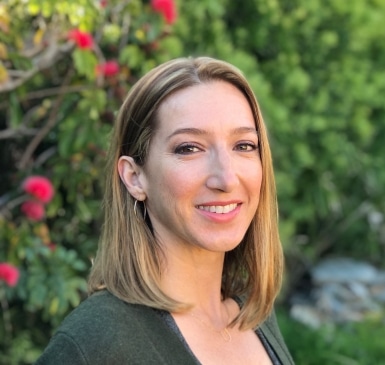
Dr Lisa Wedding
Fellow & Tutor in Geography and Sustainability Fellow
Associate Professor of Physical Geography
Education
BA MA PhD (Hawaii)
For enquiries about Dr Wedding’s role as Sustainability Fellow, please email sustainability@worc.ox.ac.uk
Dr Lisa Wedding is an Associate Professor in Physical Geography and a Tutorial Fellow of Worcester College, the University of Oxford, where she leads The Oxford Seascape Ecology Lab. She is Associate Editor for the npj Ocean Sustainability journal and Editorial Board Member for the Landscape Ecology journal. Dr Wedding previously held a Research Associate position at the Center for Ocean Solutions, Stanford University, and was a Postdoctoral Research Scholar at the University of California at Santa Cruz, USA.
Dr Wedding’s research focuses on understanding the social-ecological causes and consequences of spatial patterns and ecological processes in the marine environment. Increasingly, her research is positioned at the interface between science and policy and where she often works with a highly interdisciplinary team of lawyers, social scientists, and practitioners to link place-based scientific research findings to inform ocean governance.
Undergraduate
Dr Wedding co-leads the Geographical Techniques and Physical Geography Fieldwork courses for first year students of the Oxford Geography degree, focused on field and analytical techniques for ecological sampling. She also teaches the marine ecology content in the Prelims foundational course ‘Earth System Processes’ and the Final Honour School foundational course ‘Environmental Geography’. Dr Wedding developed and co-leads the Final Honour School option ‘Geographic Data Science’.
Postgraduate
Dr Wedding developed the ‘Seascape Ecology and Conservation’ elective module for the SoGE MSc/MPhil programmes. She also teaches the marine ecology content in the MSc in Biodiversity, Conservation and Management core modules. In addition, Dr Wedding leads the ‘Coral Reefs in the Anthropocene’ lecture course for the Environmental Change and Management MSc students in the School of Geography and the Environment. She was awarded Teaching Development and Enhancement Project Funding in 2021 to develop a new postgraduate elective module on ‘Diversifying the Curriculum Through Multiple Ways of Knowing’.
Dr Wedding’s Oxford Seascape Ecology Lab is centred on three main thematic areas of research, including:
- seascape ecology and conservation
- cultural seascapes and ecosystem services
- linking geospatial data science to ocean governance solutions
Read more about these research areas on the lab’s research page. Learn more about our current Bertarelli-funded project where our team is studying island restoration and land-sea ecological connectivity.
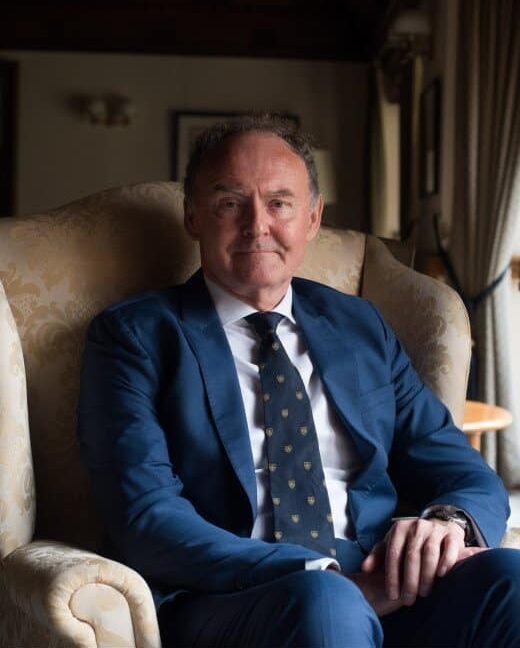
Professor Sir Mark Welland FRS FREng
Honorary Fellow
Master of St Catharine's College, Cambridge (2016-2023)
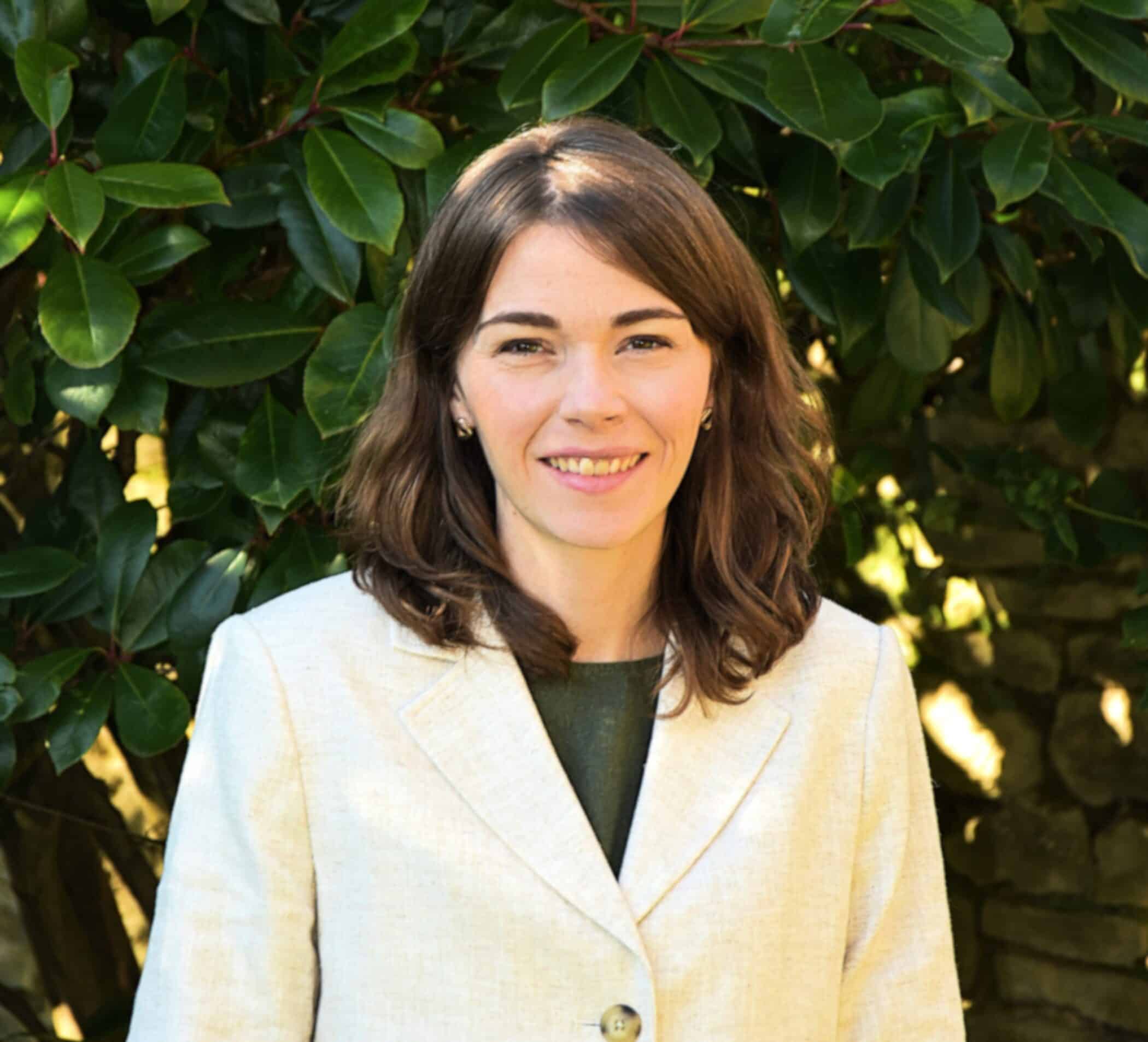
Dr Rachel Wells FHEA
College Lecturer in Fine Art
Senior Ruskin Tutor in the History and Theory of Fine Art
Education
BA (Cambridge), MA PhD (Courtauld)
Rachel is a Senior Ruskin Tutor in the History and Theory of Fine Art. Before returning to the Ruskin School of Art in Oxford in 2020, Rachel was Lecturer in the History and Theory of Art at Newcastle University (2011-2018), Tutor in Fine Art (History and Theory) at the Ruskin School of Art, University of Oxford (2009-2011), and Henry Moore Foundation Post-Doctoral Research Fellow at the Courtauld Institute of Art (2008-9). She received her PhD (2008) and MA (2004) from the Courtauld Institute of Art, London University. Prior to her study in the History of Art, Rachel read English at Cambridge University (BA 2003).
Rachel has been an invited speaker at the Universities of Cambridge, Durham, Edinburgh, Milan (keynote), Newcastle, Oxford, Sunderland, the Courtauld Institute of Art, London and the Zentralinstitut für Kunstgeschichte, Munich. She has given invited talks and tours at galleries and museums including the Ashmolean, Baltic, the Hayward Gallery, the Laing Art Gallery, Modern Art Oxford, the Photographers’ Gallery and Tate Britain.
Rachel is a fellow of the Higher Education Academy, and has acted as an External Examiner at the Universities of Oxford and Manchester.
Rachel teaches History and Theory courses across all stages of the undergraduate degree programme at the Ruskin School of Art through lectures, seminars and tutorials. She is the Fine Art tutor at Worcester College.
Rachel’s research focuses on modern and contemporary art. Recent publications have considered the exploration of scale and distance in photography, film and sculpture in relation to ethical questions of recognition, interpretation and memorialisation.
Rachel’s writing has been published by Tate, Art History and the Oxford Art Journal, among others. Her book Scale in Contemporary Sculpture: Enlargement, Miniaturisation and the Life-size (Ashgate, 2013, Routledge paperback 2016) offers a theorised account of scale in contemporary sculpture and its photographic documentation within the interlinked contexts of accelerated global capitalism and the legacies of postmodern theory.
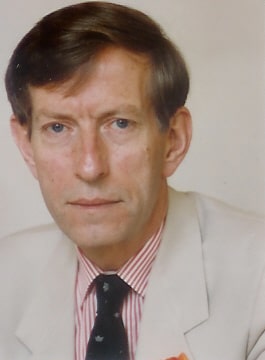
Sir John Weston KCMG
Honorary Fellow
Permanent Representative to the UN (1995-1998)
Education
1958, Literae Humaniores

Professor Sir Christopher White CVO FBA
Emeritus Fellow
Director of Ashmolean Museum (1985-1997)
Education
BA PhD (London), MA (Oxford)
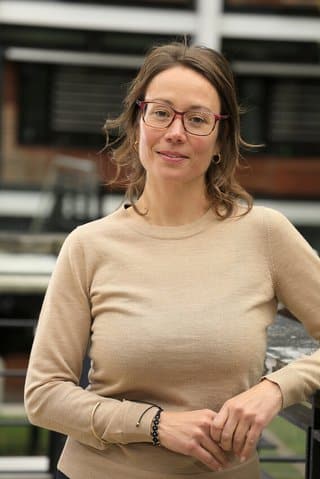
Cornelia Wiedenhofer FHEA
College Lecturer in German
I hold a degree in Applied Linguistics from the University of Graz, where I also contributed to the Austrian Romani Project, focusing on research into minority languages and plurilingualism. In addition, I completed a postgraduate certification in German as a Foreign Language.
I am a Fellow of the Higher Education Academy. My research interests include linguistics, sociomateriality, course design for blended learning environments, and the pedagogical integration of artificial intelligence in language learning and teaching.
My teaching journey started at the University of Manchester, where I worked as a OeAD-Lektorin. This was followed by a language teaching position at the University of Bristol before I joined the University of Oxford.
At Worcester I teach German prose translation into German across all year groups. At the Language Centre I teach German courses across various levels and tailored reading courses such as German for Classicists.

Barrie Wigmore
Honorary Fellow
Author & former partner of Goldman Sachs
Education
1964, Philosophy, Politics & Economics

Deedee Wigmore
Honorary Fellow
President, D. Wigmore Fine Art, Inc.
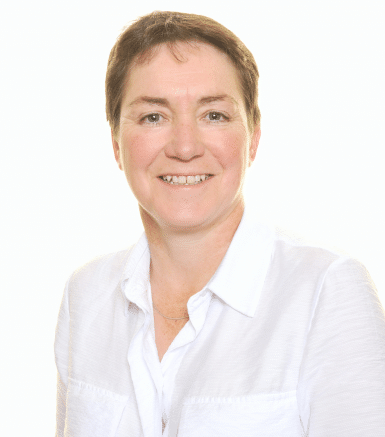
Dr Lorraine Wild
College Lecturer in Human Geography
Academic Administrator, School of Geography and the Environment
Education
MA DPhil (Oxford)
Lorraine Wild was an undergraduate and postgraduate student at St Edmund Hall, Oxford. She has a BA in Geography (1985) and her DPhil research (1990) was based on the effects of the changing legislative framework for land use planning decisions in the rural areas of the UK.
Lorraine has been a Lecturer in Geography at St Hilda’s College since 1993 and is also a Stipendiary Lecturer at Worcester College. At college level she teaches all aspects of human geography. In the School of Geography & Environment she teaches the Final Honour School third year option on European Integration.
Since 2003 Lorraine has been the academic coordinator of the Undergraduate Course in Geography and has taken a major role in the development of a revised undergraduate course which was taught for the first time in October 2011. She is responsible for overseeing the effective delivery of all aspects of undergraduate course.
As part of this role Lorraine also takes the lead in the outreach work undertaken in the department, visiting schools and making links with geography teachers. She has also been centrally involved in the Admissions process within the department over the last ten years and also been a member of the course team delivering the online Admissions and Interviewing Training Course run by the Learning Institute.
Since 2010 Lorraine has taken on the role of Programmes Officer in the School of Geography and Environment, responsible for the administration and effective delivery of both the undergraduate and all of the postgraduate courses in the department. As part of this role Lorraine has been involved in the review of the suite of MSc courses delivered in the department.
In 2007 Lorraine was awarded a Teaching Excellence Award in recognition of her outstanding contribution to the organisation and administration of teaching.
As part of this role Lorraine also takes the lead in the outreach work undertaken in the department, visiting schools and making links with geography teachers. She has also been centrally involved in the Admissions process within the department over the last ten years and also been a member of the course team delivering the online Admissions and Interviewing Training Course run by the Learning Institute.
Since 2010 Lorraine has taken on the role of Programmes Officer in the School of Geography and Environment, responsible for the administration and effective delivery of both the undergraduate and all of the postgraduate courses in the department. As part of this role Lorraine has been involved in the review of the suite of MSc courses delivered in the department.
In 2007 Lorraine was awarded a Teaching Excellence Award in recognition of her outstanding contribution to the organisation and administration of teaching.
As part of this role Lorraine also takes the lead in the outreach work undertaken in the department, visiting schools and making links with geography teachers. She has also been centrally involved in the Admissions process within the department over the last ten years and also been a member of the course team delivering the online Admissions and Interviewing Training Course run by the Learning Institute.
Since 2010 Lorraine has taken on the role of Programmes Officer in the School of Geography and Environment, responsible for the administration and effective delivery of both the undergraduate and all of the postgraduate courses in the department. As part of this role Lorraine has been involved in the review of the suite of MSc courses delivered in the department.
In 2007 Lorraine was awarded a Teaching Excellence Award in recognition of her outstanding contribution to the organisation and administration of teaching. In 2020 she was awarded the Divisional Teaching Excellence Award (Outstanding Achievement) by the Social Sciences Division.
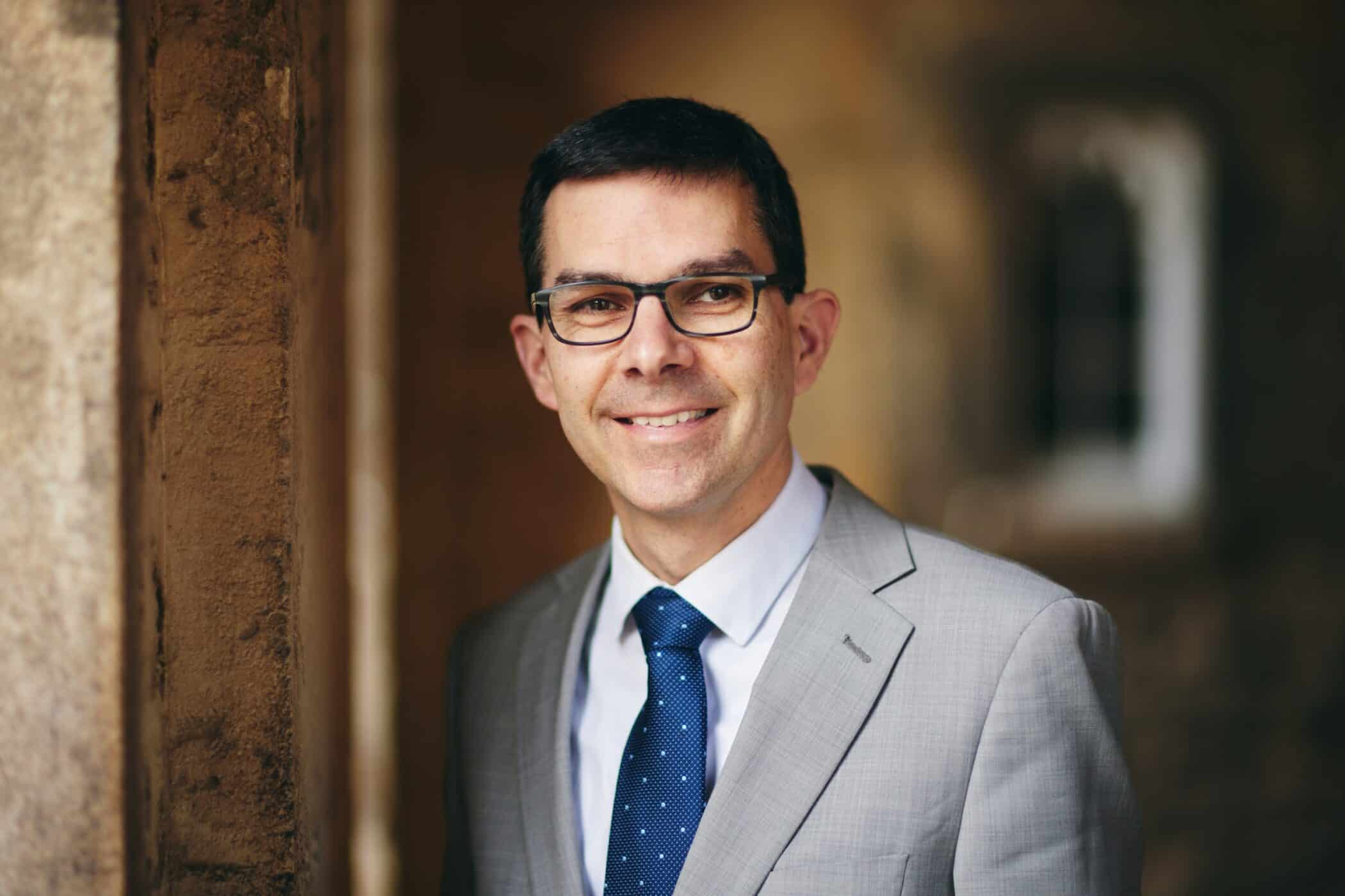
Professor Andreas Willi FBA
Diebold Professor of Comparative Philology and Complaints Officer
Professorial Fellow
Education
MA (Basle), MS (Fribourg), MA DPhil (Oxford)
Andreas Willi studied Classics, Slavonic Languages and Literatures and Historical-Comparative Linguistics at the Universities of Basel, Lausanne, and Fribourg in Switzerland as well as at the University of Michigan, Ann Arbor. After writing his doctoral thesis on sociolinguistic variation in Ancient Greek at the University of Oxford, he worked as Oberassistent in Classics (Latin and Greek Philology) at the University of Basel, before becoming a member of the Swiss Institute at Rome and then moving back to Oxford in 2005 to take up the Diebold Chair of Comparative Philology. In 2020 he was elected as a Fellow of the British Academy.
Andreas Willi has worked extensively on sociolinguistic and dialectal variation in Ancient Greek, on language contact and the language-literature-culture interface in the ancient world, with a special focus on Sicily, and also on Classical (Greek and Latin) literature. At present one of his main interests on the linguistic side is the history and prehistory of the Greek (and Indo-European) verbal system, in particular the development of tense-aspect categories both from a formal (reconstructive) and a functional (philological) point of view. This focus is supplemented by — mainly morphological and etymological — work on other ancient Indo-European languages, especially those of Italy (Latin, Sabellic).

Professor Sir Roger Williams FLSW
Honorary Fellow
Vice-Chancellor of the University of Reading (1993-2002)
Chair of Higher Education Funding Council for Wales (2002 to 2008)
Education
1960, Physics

Dr Stephen G. Williams
Emeritus Fellow
Education
BA (London), BPhil MA DPhil (Oxford)

Dr Alex Wilson
College Lecturer in Ancient History and Strategy & Governance Officer

Edward Wilson FSA FLS
Emeritus Fellow
Tutor in English
Education
BA (Hull), BLitt MA (Oxford)
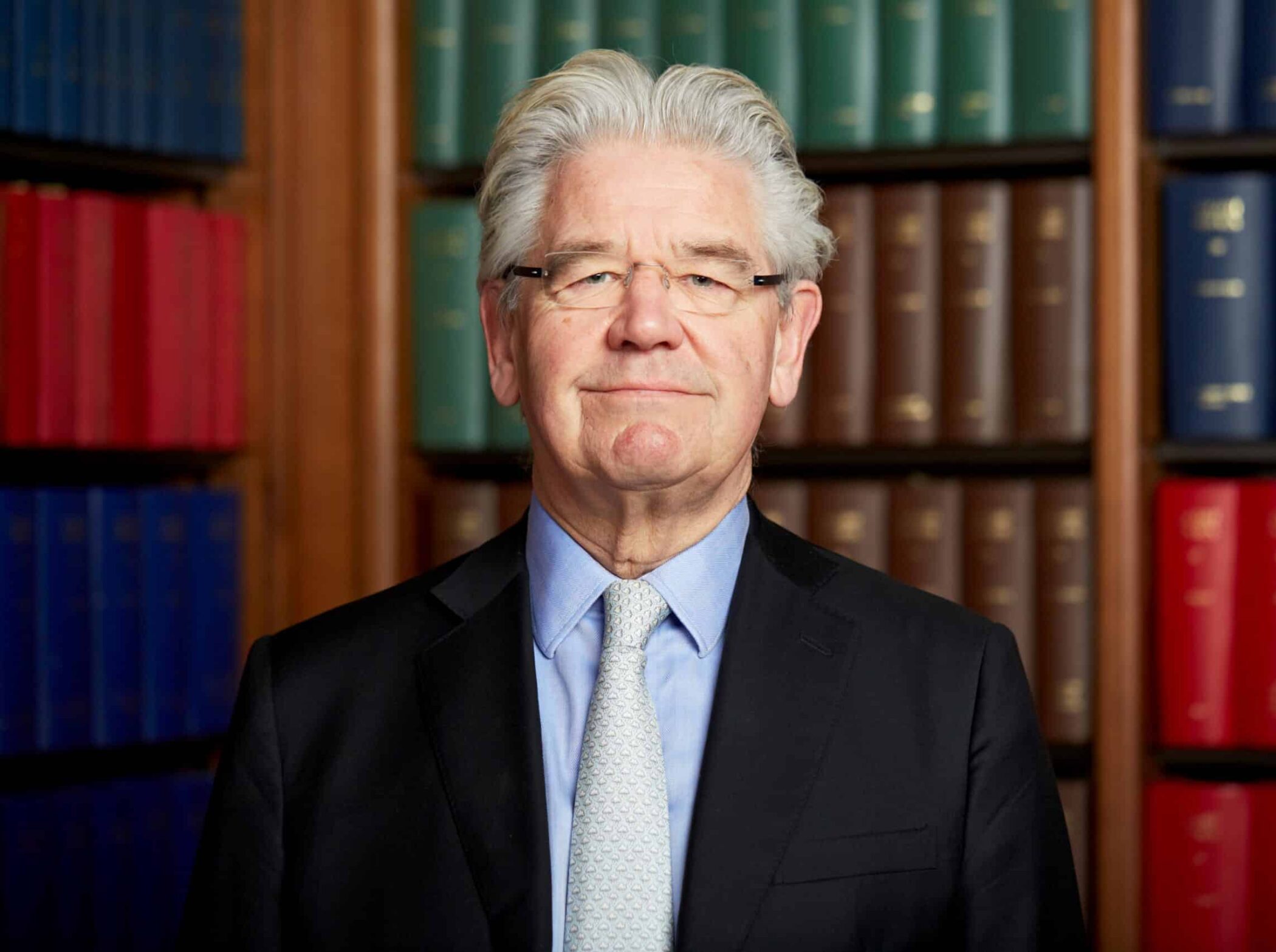
The Rt Hon. Lord Wilson of Culworth PC
Honorary Fellow
Justice of the Supreme Court of the United Kingdom (2011-2020)
Education
1963, Law









